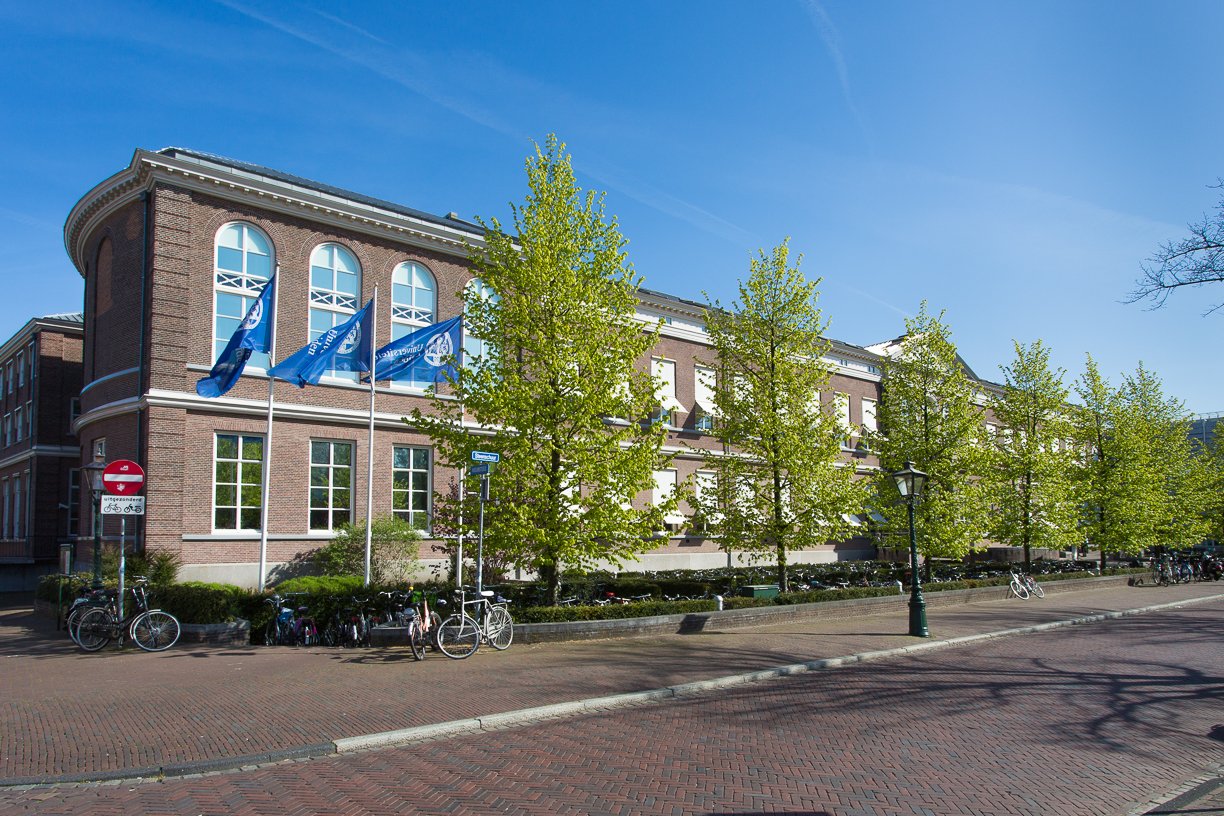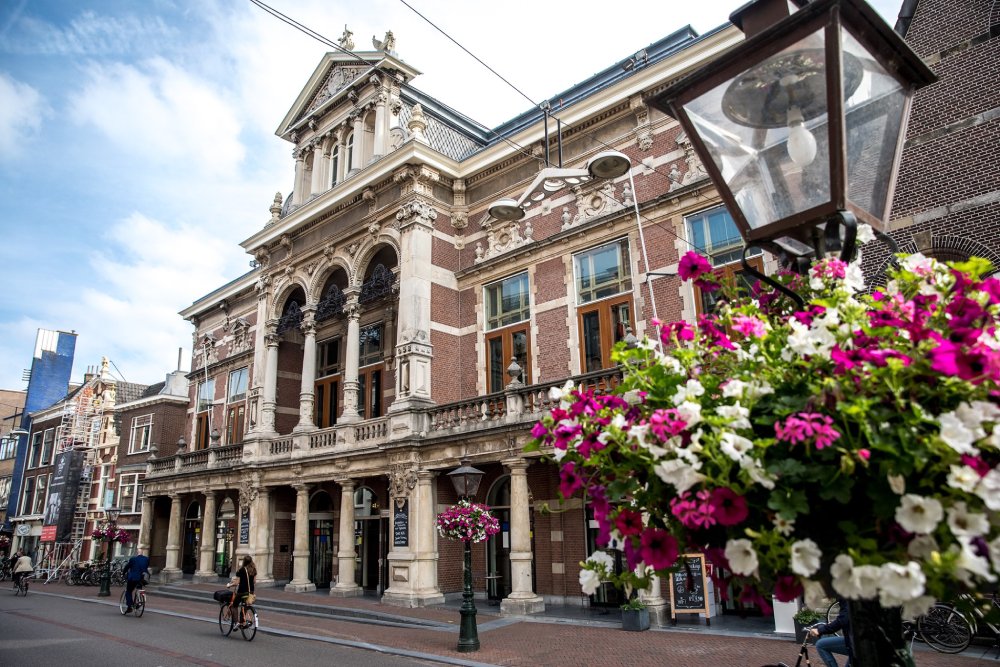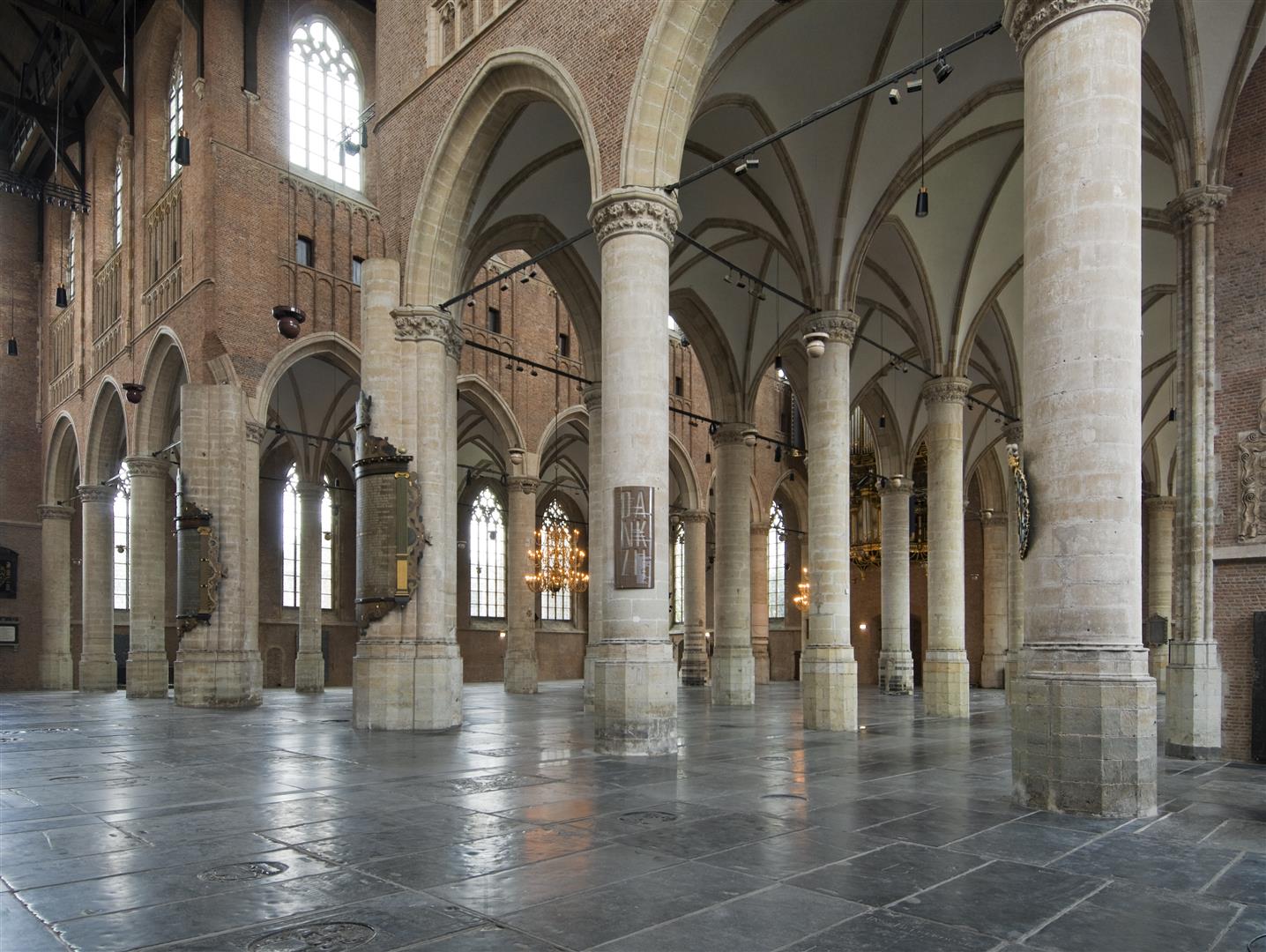The ISIE2023 conference will be held in three historical buildings in Leiden. Read more about the
city of Leiden and its attractions, and
how to get to and around the city. Also check back for information about
accommodation and activities for
accompanying persons.
*Kamerlingh Onnes Gebouw

This building connects two important moments in Leiden's history.
In January 1807, a gunpowder ship moored here exploded. The blow swept away 218 houses on either side of the canal.
After the site had lain fallow for half a century, a Physics, Chemical, Anatomical and Physiological Laboratory was built here on the 'Kleine Ruïne', designed by architect H.F.G.N. Camp.
The building bears the name of the physicist and Nobel Prize winner Heike Kamerlingh Onnes (1853-1926). 100 years ago, he succeeded in liquefying the noble gas helium at this location at a temperature of -269° Celsius, just above absolute zero. It is from this that the building derives its nickname 'the coldest place on earth'. Together with his colleague and friend Hendrik Lorentz (1853-1928, also Nobel Prize winner), Kamerlingh Onnes developed the laboratory into one of the most advanced in Europe.
** Stadsgehoorzaal Leiden
The Leiden Stadsgehoorzaal is more than two centuries old. The first building with that name was located in the Lokhorststraat. In 1826 a second Stadsgehoorzaal was built on Breestraat.
In the course of the nineteenth century, this building proved to be too small. A new auditorium was built on a tight budget. This room was soon dismissed as 'draughty, inflammable and therefore unusable'. The city council decided to renovate. A building on the left was purchased for this purpose to be incorporated into the building. This hall was destroyed by a great fire in August 1889.
A year later, the rebuilding started. The Stadsgehoorzaal is still a rare example of Neo-Renaissance architecture. The facade with the colonnade gives the building a special allure. In the years that followed, the building was expanded several times - the last time in 2004 with the Aalmarktzaal. The interior is also constantly being renovated.
*** Pieterskerk Leiden
The Pieterskerk Leiden has been the central touchstone of Leiden for over 900 years. It was consecrated in 1121 and was founded as the family chapel for the counts of Holland.
The monument is steeped in history. Leiden University was founded in the Pieterskerk Leiden in 1575. Famous painters such as Rembrandt and Jan Steen are connected to the monument. And the American Pilgrims, who lived on the same street, have a special connection to the Pieterskerk Leiden and are still commemorated there.
The two keys of St. Peter, the original patron saint of the Pieterskerk Leiden, form the Leiden coat of arms and symbolically unlock the gates to both Heaven and Earth. This symbolism is reflected in the use of the Pieterskerk Leiden, as it transformed from a Catholic church into a Reformed church and since 1976 into a multifunctional meeting place in a monument of unique cultural and historical value.

 KOG*
KOG*  SGZ**
SGZ** Pieterskerk***
Pieterskerk***
